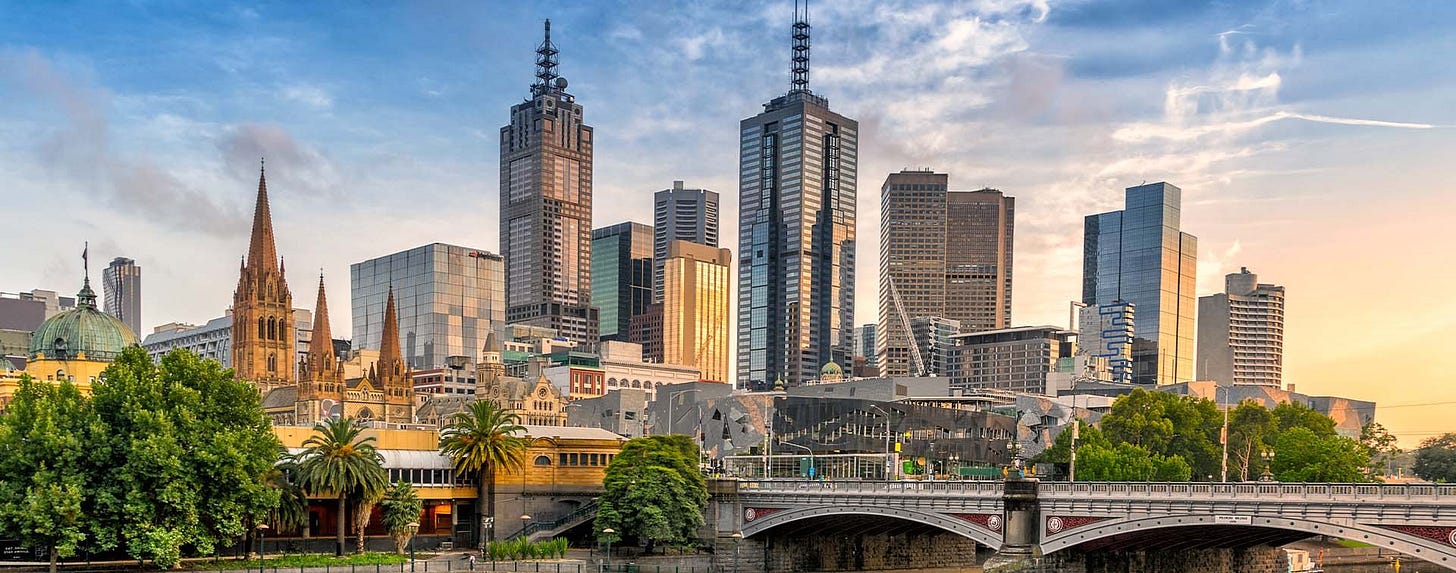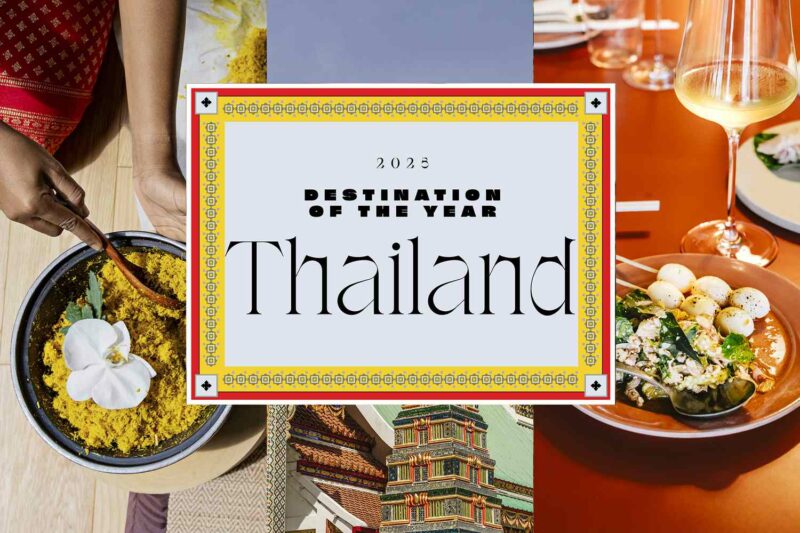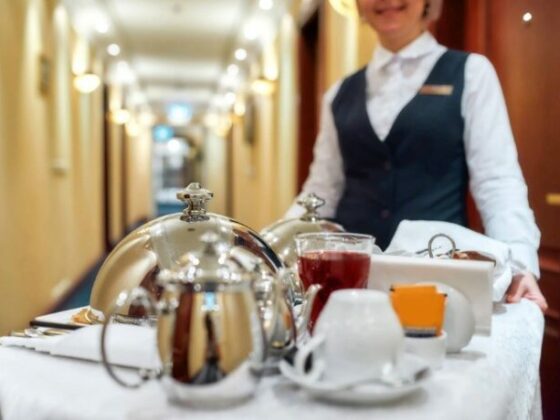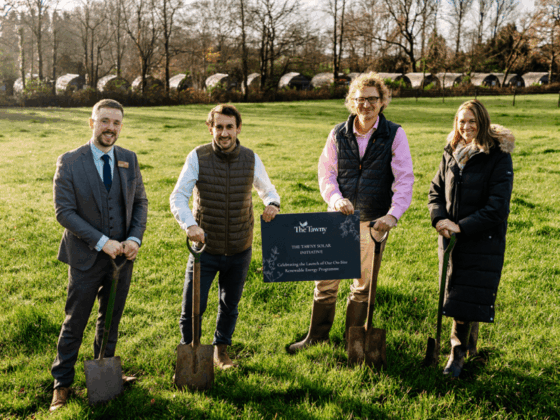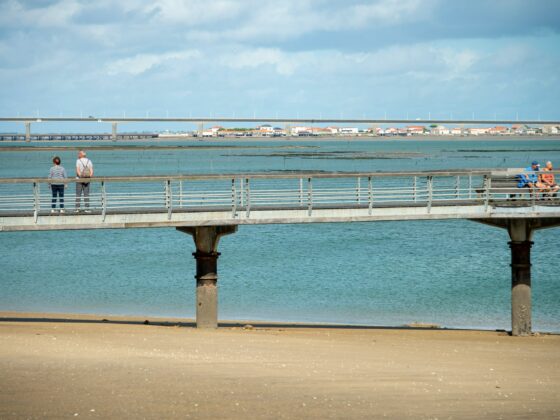The Dive // What happens when UHNW families seek new homes for safety, vitality, and belonging, and why the industry must pay attention.
This week on The Dive, we are asking: What does it mean when wealth itself begins to move?
Across continents, families with significant resources are rethinking where to live, where to educate their children, and where to build their futures. On the surface, these moves may look like financial strategy. But underneath, they speak to deeper questions of safety, vitality, and belonging in a world that often feels increasingly fragile.
This is not abstract for us at Beyond Luxury. Since Season 1 of the podcast, in our work with clients, and even in our own weekly team calls, the theme of wealth migration keeps resurfacing. With roots across the Americas and Europe, and families marked by migration, it echoes in our own experiences and choices. Which is why we felt compelled to pause and reflect on it more deeply.
Because the scale of these shifts is so vast, we are approaching it differently this week. For the first time, we are splitting our reflection into two parts. Today’s piece explores the phenomenon itself and the patterns emerging around it. Next month’s Dive will move from patterns to meaning, looking at what these movements reveal for culture, for luxury, and for the future we are all shaping together.
Zooming out to observe where wealth is flowing matters. It helps us make sense of the insights we share each week and places them in a wider context. For brands, this perspective is vital. It shapes how they anticipate shifting priorities, design relevance across geographies, and connect with the deeper cultural currents that are redefining value.
We see these shifts not only in data and headlines but also in the quieter decisions ultra-high-net-worth families are making. Some are leaving long-established capitals. Others are planting roots in new hubs that promise stability and continuity. Step by step, these choices are redrawing the map of quality and reshaping how luxury is experienced, appreciated, and desired.
The scale is striking. The Henley Private Wealth Migration Report 2025 projects that 128,000 millionaires will relocate this year, the largest number on record. The United Kingdom alone registered 10,800 departures in 2023 after the end of its non-dom regime, while inflows to the UAE, Australia, and Singapore continue to rise.
What emerges is a map in transition. London, New York, and Hong Kong still carry symbolic weight, yet new geographies are stepping forward. Singapore, Dubai, Sydney, and Miami are no longer seen as peripheral. They are being chosen as homes, supported by infrastructure, cultural life, and stability that families hope will carry across generations.
This movement reflects the atmosphere we are all living in. Privacy feels fragile in a world of constant exposure. Technology expands possibilities even as it deepens unease for the future. The lessons of the Blue Zones remind us that health and time are the most treasured resources, while cultural mirrors like Apple TV+’s 2023 show Extrapolations project futures often shaped by fear. In this light, relocation becomes a search for balance, and perhaps a way of life that feels coherent, safe, and sustainable amid acceleration.
The departure of millionaires and billionaires is part of a wider reordering. Wealth is concentrating in places that promise vitality and security, redefining the cultural and emotional landscape of luxury. More than ever, it reminds us that luxury today is defined less by possessions and more by the freedom to choose how life is lived. With this in mind, we share three dimensions of this shift in this first part of our reflection, which we believe carry particular relevance for our industry and deserve close attention as wealth mobility continues to unfold.
Lets dive in!
#1 – Hospitality as a Landscape of Permanence
We begin with hospitality, real estate, and travel, because they are among the first and most visible fields being transformed by wealth migration. The current wave of relocation is transforming this field into something more enduring. What was once a sector centered on journeys and short stays is increasingly being asked to provide the foundations of everyday life. The Private Wealth Shuffle report highlights how ultra-wealthy individuals are now seeking environments that function as ecosystems, where housing, education, healthcare, and cultural life are interwoven rather than separate.
Destinations attracting the highest inflows of wealth illustrate this change and allow us to dive deeper into the dynamics of this shift. According to the Economic Times, Dubai is expected to welcome 9,800 new millionaires in 2025, placing it among the leading global hubs for relocation. Florida, and Miami in particular, are experiencing parallel growth. Forbes notes that the United States will gain 3,800 millionaires this year, with Florida capturing a significant share thanks to its tax advantages, strong international schools, and a luxury real estate market designed for permanence.
Spain is also becoming a focal point. In recent years, it has attracted a wave of Latin American high-net-worth families, drawn by cultural proximity, language, and residency options that make settlement easier. Beyond the numbers, this movement is reshaping the urban fabric of Madrid, where luxury complexes such as Centro Canalejas, home to the Four Seasons hotel, branded residences, and a high-end mall that reported record revenues in 2024, embody how the industry of travel and real estate merge into anchors of permanence. For many Latin American families, Spain represents continuity with heritage and a gateway into Europe.
South America enters this picture from another perspective. Brazil and Argentina continue to see steady outflows of high-net-worth families, many of whom are relocating to Miami, Lisbon, or Dubai. At the same time, Uruguay is emerging as a haven. Its political stability, favorable tax regime, and expanding luxury real estate market, particularly in Punta del Este, are attracting families in search of continuity and security. These movements reveal how choices are increasingly guided by daily living conditions as much as by investment opportunity.
In North America, another form of permanence is taking root. As Robb Report recently observed, some of America’s wealthiest are turning to luxury ranch estates across Montana, Wyoming, Colorado, and Texas. Sales of properties once owned by cattlemen are now being driven by billionaires, celebrities, and financiers drawn to space, privacy, and connection to the land. From Ted Turner’s vast holdings to Greg Norman’s 12,000-acre game ranch in Colorado, ranches are being reframed as status symbols of self-sufficiency and legacy. Recent transactions include a 1,507-acre spread near Austin selling for $90 million, and the 353,000-acre Brewster Ranch in West Texas changing hands for $164.6 million. These estates blur the line between private residence and the world of high-end travel, offering sanctuary and experience in equal measure. If once wealth gravited toward big cities, today we are witnessing the opposite.
This new scenario is redefining how hospitality is imagined. Properties once positioned as retreats are now conceived as frameworks for permanence. Branded residences tied to Aman, Bulgari, and Dorchester Collection are expanding, merging service with infrastructure. Schools, clinics, and cultural institutions are being integrated into these developments, turning the field into the architecture of settlement.
For families rebuilding their lives in new geographies, the measure of this industry is its capacity to sustain a way of living rather than a fleeting impression. The migration of wealth strengthens this expectation, and the operators designing for permanence, where service becomes part of daily rhythms, are the ones shaping the next chapter of luxury living.
#2 – Health and Wellness as the True Currency
More than ever, the movement of wealth is increasingly guided by health. Concerns over pollution, preventive care, and access to advanced medical systems are shaping relocation as much as fiscal policy. Recently, Henley & Partners observe in their 2025 migration report that environmental and lifestyle considerations now weigh equally alongside taxation when high-net-worth families decide where to live. This alignment of vitality with place is reshaping the meaning of prosperity.
The numbers behind the wellness economy illustrate the momentum. McKinsey estimates the sector at 1.8 trillion dollars in 2024, with annual growth between 5% and 10%. Wellness tourism alone is projected to surpass 1.4 trillion dollars by 2027. The market is expanding beyond resorts into communities designed for longevity. Spain, home to some of the world’s best cardiovascular health outcomes, continues to attract international residents who associate its lifestyle with better food, lower stress, and more favorable healthcare. As wellness expert Yalda Alaoui recently explained in conversation with Beyond Luxury, many are beginning to recognize a mispricing in global real estate: cities that are costly to inhabit often make their residents sicker, while countries with healthier lifestyles remain undervalued.
The United States reflects this shift in its own way. Miami has overtaken Beverly Hills as the most expensive neighborhood in America, with Gables Estates reaching an average home price above 21 million dollars, according to Business Insider. Analysts point to more than tax advantages. Cleaner air compared with other U.S. urban centers, access to world-class clinics, and the appeal of oceanfront living have turned Florida into a magnet for families seeking healthier, more balanced environments. At the same time, studies like the Guardian’s recent review on air pollution and mental health emphasize that relocation is not only about physical wellness but also about cognitive resilience and psychological well-being.
This evolution is reshaping the language of luxury. As Alaoui notes during our episode with her on the Beyond Luxury podcast, health is becoming the ultimate form of wealth because it cannot be outsourced. Families choosing homes in Geneva, Lisbon, or Miami are investing in health span as much as in lifestyle. Properties integrated with clinics, regenerative food systems, and longevity services are no longer niche but part of what younger affluent groups now call “longevity real estate.” The rise of communities designed around wellness shows how affluence is shifting from accumulation toward environments that sustain life in fuller ways.
For the industry, this creates a mandate to embed health into every layer of its offerings. The relocation of wealth magnifies this direction, making vitality the true currency of luxury.
#3 – Private Cities: Laboratories of the Future
As the third theme in this first part on the migration of wealth, we turn to a growing frontier: the rise of privately designed and governed cities. Often called private or charter cities, these projects experiment with governance, infrastructure, and lifestyle at a scale once reserved for states. Their ambition is to attract talent and capital by creating conditions where prosperity and wellbeing are built into the fabric of daily life. For wealthy families seeking stability, security, and innovation, they represent both possibility and uncertainty, offering a glimpse of how new models of living may emerge.
Across the globe, these experiments take diverse forms. On Roatán Island in Honduras, Próspera has drawn international attention as one of the most radical examples. Established as a Zone for Employment and Economic Development, it operates under its own tax and legal frameworks. Its advocates present it as a hub for biotech, blockchain, and longevity research, while its critics raise questions of sovereignty and accountability. In East Africa, projects such as Tatu City in Kenya or Itana in Nigeria reveal a different emphasis. Here, the focus is on providing infrastructure and order for rapidly urbanizing populations, positioning these cities as pragmatic responses to the challenges of growth while appealing to global investors and entrepreneurs.
South America is entering the conversation in its own way. In Peru, developers are constructing a 200-hectare artificial peninsula off Callao, envisioned as a financial and tourism hub with private marinas, beaches, and luxury residences. Marketed as a “Dubai of South America,” it signals how ambitious coastal engineering is being deployed to attract international capital and create new symbols of modern nationhood. Such projects blur the line between real estate and statecraft, as private ambition steps into the realm of national identity.
In the United States, the scale of imagination grows even further. Marc Lore’s proposed city of Telosa envisions a $400 billion car-free settlement for five million residents, designed around renewable energy and the principle that rising land value should fund public services. With Bjarke Ingels shaping its masterplan, Telosa is positioned as an aspirational prototype, a speculative response to inequality and environmental stress. Whether or not it is built as designed, it embodies the allure of starting again, of designing urban life as an intentional experience.
For the luxury industry, these laboratories of the future matter. They point to where wealth, culture, and innovation may cluster in the decades ahead. If cities can be created as ecosystems of prosperity, learning, and wellness from the ground up, they will redefine what belonging means for the world’s affluent. In this light, private cities are less an experiment in governance than an attempt to reimagine how luxury itself can be lived, not as an overlay on existing structures, but as the architecture of a new social contract.
So, Why Does This Matter?
The relocation of wealth is reshaping how prosperity is lived. In the search for stability, vitality, and coherence, families are choosing places where life can unfold with greater resilience. From new urban hubs to residences designed for permanence and communities built around wellbeing, the migrations of today are already redrawing the cultural and emotional map of affluence.
For the world of luxury, the implications are far-reaching. Wherever wealth establishes itself, it brings expectations of care, of environments that sustain health, education, and belonging. Luxury has long followed affluence, yet its relevance now depends on anticipating the values that guide these choices and shaping experiences that feel anchored in continuity rather than in noise.
It also invites us to reflect on a larger shift. For decades, population flows gravitated toward dense city centers, symbols of opportunity and cultural gravity. Today, the movement feels different. We see a search for nature, for order, for structures that sustain life in ways megacities no longer can. What once was central is being reconsidered, and what once was peripheral is finding new strength.
What should brands do with this? Anticipate it? Design for it? Follow, or lead? And if these migrations are reshaping the foundations of prosperity, how should luxury respond to ensure it remains not only relevant but resonant in the worlds now being chosen? Is luxury ready for it?
This reflection is close to us at Beyond Luxury, as a team whose own lives are rooted in movement and multicultural ties. Migration shifts are also shaping the future of our society, and this is only the beginning.
In the near future, how we interact, study, and consume will be redefined by new ways of living. For that reason, we invite you to stay close to us and not miss next month’s edition of The Dive.
Thank you for being part of this reflection with us, and for exploring the future of luxury together.
Our Team
Carlota Rodben is CEO and Founder of Beyond Luxury Group and host of the Beyond Luxury Podcast, ranked among the top #2 globally in its category. A best-selling author, she has written Beauty As It Is and Beyond Luxury: The Promise of Emotion, two acclaimed books exploring the future of beauty and luxury. Formerly at CHANEL, she founded the Open Innovation Team in Europe and later led New Concepts for the Global Open Innovation Team. Carlota lectures at institutions including NYU, Glion, ESADE, Porto University, IE, and Regent’s University London, is a sought-after advisor and thought-leader on innovation, futures thinking, and purpose-driven strategy in the luxury industry.
María Inés Gougy is the Brand Strategy Manager at Beyond Luxury Group. She is passionately driven by the intersection of culture, human nature, and brand building. Her expertise is grounded in a track record of impactful work with leading creative agencies and strategic consulting firms, where she has advised global brands across entertainment, consumption, and lifestyle on building relevance through cultural insight and meaningful storytelling.
Caroline Cotten is the Strategic Insights Manager at Beyond Luxury Group. Based in Paris, she holds a Master’s in Luxury Brand Management from Istituto Marangoni. With experience spanning biotech startups and luxury groups like Kering, she has led initiatives in investor relations, crisis communications, and brand storytelling. She brings a global perspective and a research-driven approach to help brands navigate cultural and consumer shifts.
